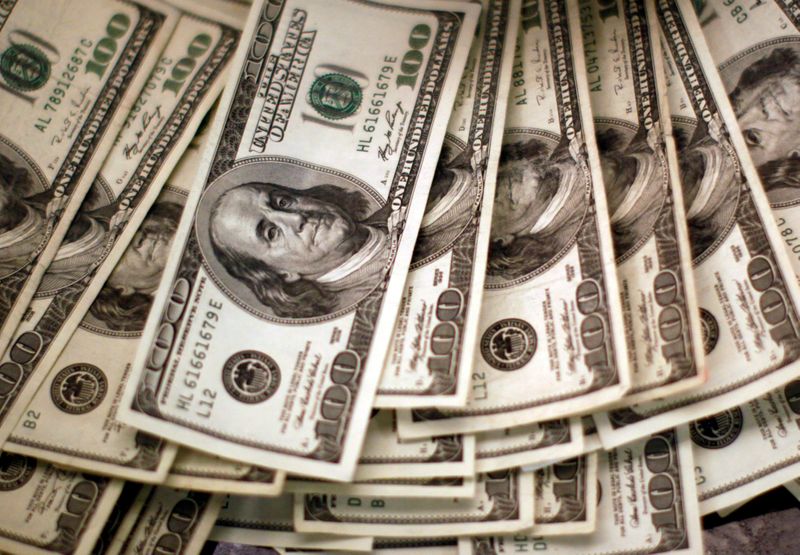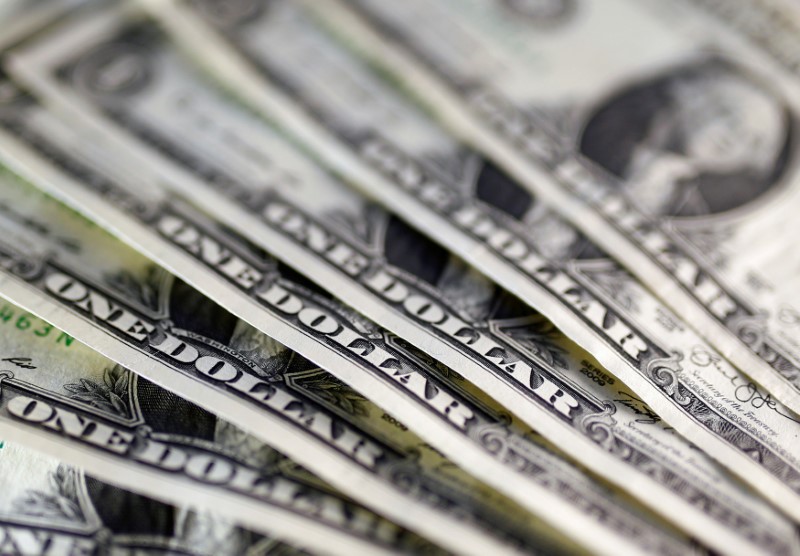By Tom Westbrook
SYDNEY (Reuters) - The dollar held broad gains on Thursday as investors adjusted some of their bullish expectations about a COVID-19 vaccine, tempering a recent rally in risk assets but keeping enough confidence to support the greenback against other safe-havens.
The dollar index
The yen, a popular vehicle for bets against the dollar, is now at 105.41 per dollar, some 2% below an eight-month high it hit against the greenback last week, when Joe Biden's lead in the U.S. election spurred a wave of dollar selling.
The euro (EUR=) slipped 0.3% overnight after the European Central Bank said it would focus on bond buying and cheap loans to boost pandemic-wrecked economies, while the British pound
Only in the Antipodes was the dollar weaker or steady, after the kiwi leapt following an upward adjustment in the Reserve Bank of New Zealand's "unconstrained" cash rate projection, which prompted traders to trim expectations for negative rates.
"I think we had a speculative market that was increasingly comfortable being short U.S. dollars," said National Australia Bank (OTC:NABZY)'s head of foreign exchange strategy, Ray Attril.
"Then we had the vaccine news and a big spike in U.S. bond yields, which I think just acted as a little bit of a check on unbridled U.S. dollar bearishness," he said.
"A lot of positions probably got squeezed. I think it was a condition of the market rather than a strong fundamental response or a change of thinking about the U.S. dollar."
Against a basket of currencies, the dollar fell more than 10% from a March peak to the 10-week low hit on Monday. It has since rallied nearly 1%, mostly thanks to safe-haven selling after Pfizer (NYSE:PFE) announced it had a working virus vaccine.
The dollar's decline had been predicated on crumbling U.S. bond yields, as the Federal Reserve promises low rates for a long time, and hopes for a global recovery that would lift other currencies.
OCBC strategist Terence Wu in Singapore said that new drivers might now need to be found to send the dollar any lower.
"With the broad dollar in a consolidative mode, the posture for USD/CNH may also be sideways in the near-term. These factors play into limited downside for USD-Asian pairs in the near-term," he said in a note.
In early Asia trade, the Chinese yuan
The Australian dollar
The New Zealand dollar
Kiwi bond yields surged on Wednesday as investors swiftly priced out expectations of negative rates. [NZD/]
The shift also sent the Australian dollar to a six-month low against the kiwi (AUDNZD=).

"The pair looks heavy and at risk of further downside," said Chris Weston, head of research at broker Pepperstone in Melbourne.
